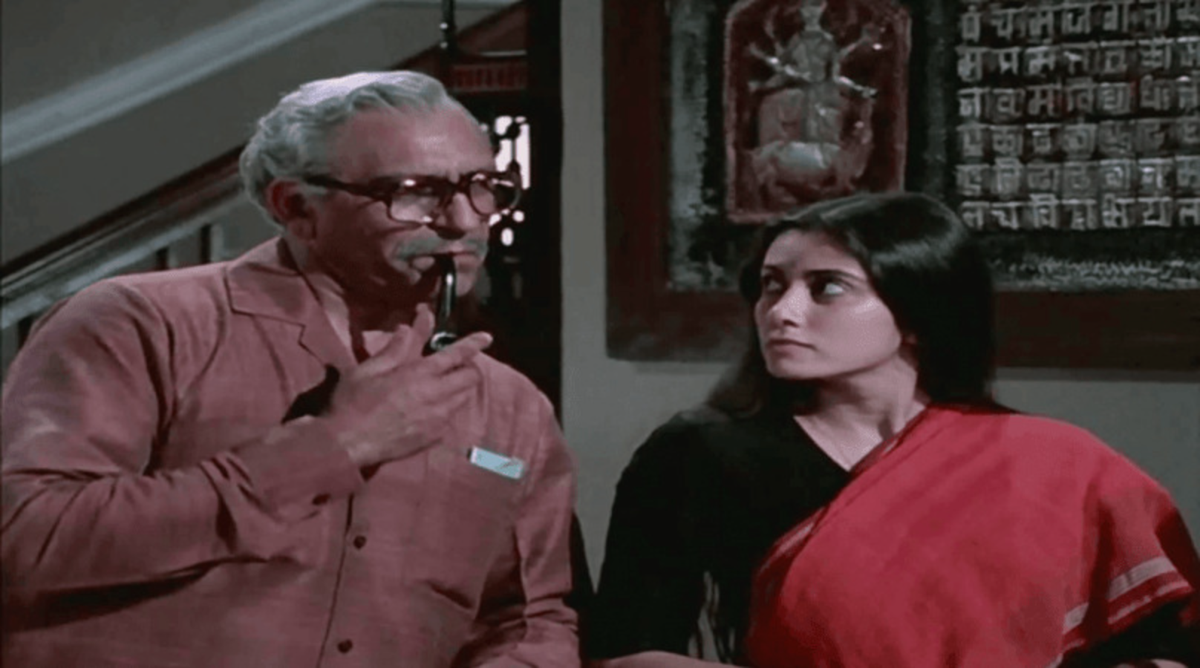[ad_1]
“It’s my quietest film, but also my loudest,” says Govind Nihalani, talking about Party (1984), which was not only considered a landmark film, but also a cinematic manifesto of the Indian New Wave Movement.
“I believe every artiste has a point when the mirror turns toward him. Party was that mirror for me,” says Nihalani, who describes the film as a “keen take on the double standards and intellectual pretensions of the Indian middle and upper class,” Nihalani, now 84, told The Hindu over phone, from Mumbai.
Party is scheduled to be screened at the International Film Festival of India (IFFI), which commenced on November 20 in Goa. The film was screened under the ‘Special Presentation’ category of Indian Cinema on November 24.
Based on Mahesh Elkunchwar’s Marathi play of the same name, Party is one of Nihalani’s most distinct and yet, not often mentioned works. The film poses fascinating questions, in a direct fashion unprecedented in Indian cinema, examining the practical applications of art and the role it can play in the socio-political struggles of society.
A still from Govind Nihalani’s Party
| Photo Credit:
Special Arrangement
Though it was released 40 years ago, Party is still relevant and appeals to audiences, especially those who are fans of Nihalani’s work.
According to the synopsis brought out by IFFI Goa, “Party is a sharp satirical drama set in the world of urban intellectuals and artists. The film unfolds during a high-profile party hosted by a wealthy socialite to honour a celebrated poet recently awarded by the State. The intellectuals’ posturing stands in stark contrast to the life of the absent revolutionary poet. The film critiques the hollow elitism of the privileged class and questions the role of artists in society”.
Party is frequently described by critics and scholars as a philosophical film that interrogates the “moral responsibilities” of artistes toward political struggles. In the film, Nihalani presents the “two moral spheres” of artistes, namely their everyday self versus their creative side.
Admitting he was influenced by literature, theatre and poetry, the filmmaker says Party was written in a style that was “literary-theatrical, much like a chamber drama”. “I value essence over literal adaptation. I wanted to be faithful to the essence of the work, not the writer. The choice of a confined setting was deliberate to create an enclosed stage-like feel that would heighten dramatic tension.”
“Many characters in Party are portrayed as being alienated from society. I have tried to suggest that intellectuals examine their own complicity,” says Nihalani, for whom the film was a part of a career-long commitment to socially conscious filmmaking.

A still from Govind Nihalani’s Party
| Photo Credit:
Special Arrangement
Flash back
Thanking the National Film Archives of India (NFAI) for taking the initiative to digitally restore Party, Nihalani said, “I recently attended a screening of Party in Mumbai; the NFAI has done a great job of digitally restoring the film. It has been many years since I have seen it, and many of my colleagues from that production are no longer with us. Now, only their memories remain”.
“Watching Rohini Hattangadi and Vijay Mehta on screen left me overwhelmed. Renu Saluja’s editing was amazing, and Mahesh Elkunchwar’s play offers a critique of intellectual pretensions and the dynamics of a modern middle-class social gathering. His writing is vibrant and addresses contemporary issues; working with him was truly satisfying.”
“I am indebted to the National Film Development Corporation for its financial support,” he adds.
Nihalani was highly sought after following the release Ardha Satya (1983). “Ardh Satya was a commercial success, and producers offered to finance my next film. They even gave me cheques, but after they watched Party, they asked for their cheques to be returned,” he laughs.
Undeterred by their response, Nihalani continued to make films, as “cinema for me is a medium where demands such as space, time, colour, movement, sound and music must be employed to give vision to my inquiry into the human condition. I have consistently changed my style and choice of subject as a director. I cannot bear to repeat myself.”
Published – November 25, 2025 05:26 pm IST
[ad_2]
Party, the 1984 Govind Nihalani film, to be screened at IFFI-Goa this year





